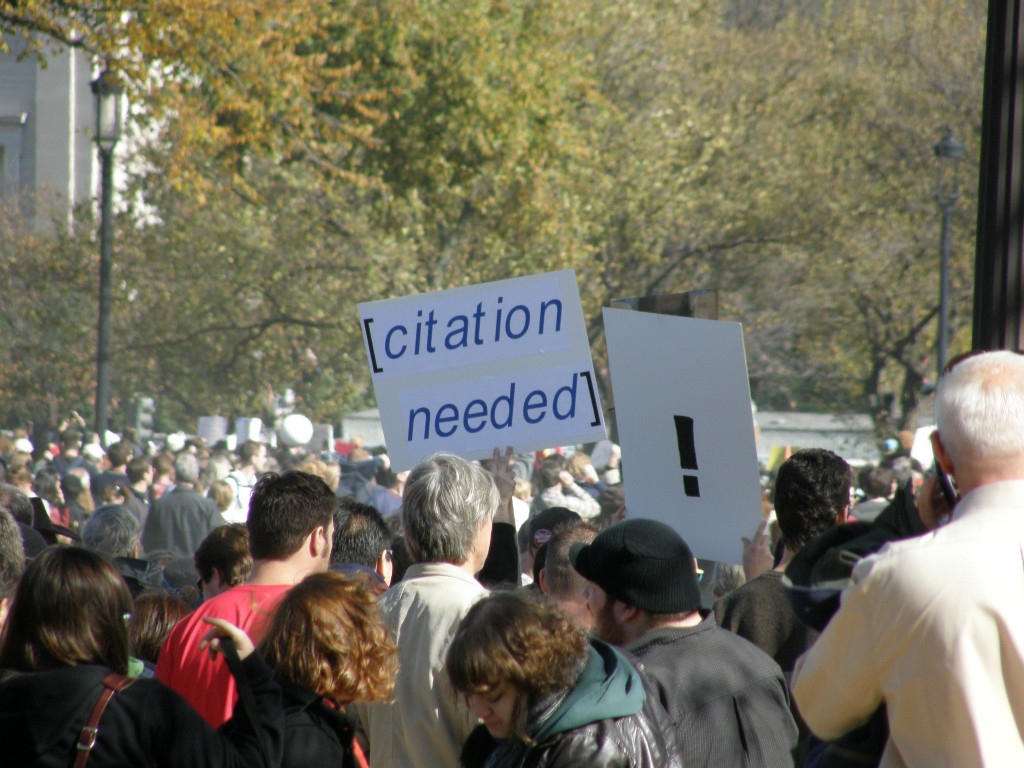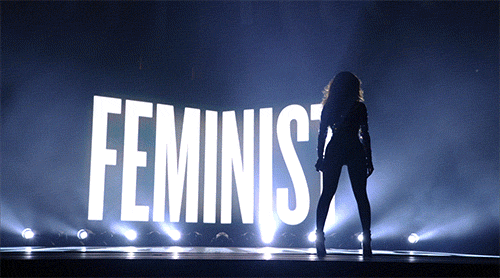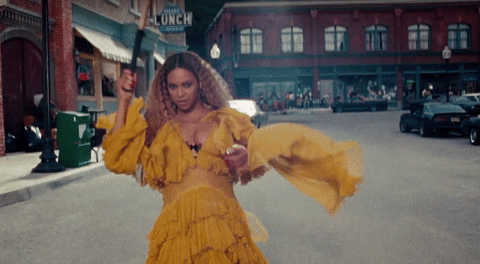Out Of Cite
Internet writers are standing on each others’ shoulders just so they can be first.

The fact of timely cultural criticism on the internet inspires a palpable anxiety amongst writers on concerns of originality and the desire to be first. The incredibly scant window of time to not only pitch but then produce a piece of writing on a given album drop or public feud or bigoted soundbite creates somewhat of a conflation between the two. Ricky Bobby and whatnot. The problem of the harried response piece and the pressures imposed upon writers is an adjacent issue, one captured succinctly in a tweet from author Roxane Gay in the wake of Lemonade. I’m more concerned with the consequence — when writers shy away from prior work as if acknowledging precedent sullies originality.
Writing an essay on lemonade and a lemonade syllabus. Want to take my time but goddamn. Mofos churning content out at a frightening pace.
— @rgay
I like to write about the internet, for the internet. The last thing I wrote about the internet was an idea I’d been toying with for almost a year, accumulating quite the messy collection of excerpts, tweet links, screenshots, and shitpics spread across multiple mediums and devices. Not everything made it, of course, but still the final product was the most densely citational essay I’d ever done, including academic work. During final edits of the thing — like, the final edit — I came across Amanda Hess’s great “Hands Off My Smiley Face” in the New York Times. As I read through the piece and its insights I felt gutted, as if a year of thinking, weeks of drafts, and 2000 words instantly became obsolete.
She’d gotten there first.
First is relative. Topically, almost nobody is first in anything, even the long-dead thinkers who get canonized as such. But originality is not anchored to topical firsts, but rather new ideas. When a new paper is published, it’s considered innovative not because the researchers were the first to work with the materials but because they do so differently, or better. Lauren Chief Elk-Young Bear writing on drone feminism is hardly the first to talk about either, but the proposition she comes to in consideration of what’s been done prior is all her own.
This is why writers have editors: to skirt around a splattered mess of emotional attachments and see what’s on the page for what it really is. To help a writer see that topic similarity is not akin to redundancy. That two people can observe the same trend differently, yet also inform each other. That’s how you have a conversation. What’s more important, to be mythically “first” or advance conversation about a subject matter in the richest way possible?
In the Chronicle of Higher Education, in an article titled, “Erasing the Pop-Culture Scholar, One Click at a Time,” professors Amanda Ann Klein (East Carolina University) and Kristen Warner (University of Alabama) take on the “pop-culture thinkpiece” and address the genre’s unwillingness to seek expertise when it comes to interpretation and cultural criticism(ish). What’s often assumed to be untrodden ground — consider the now passé, “why is nobody talking about X” style — is actually a phenomenon many somebody elses have been thinking about for quite awhile, which writers would see if they only bothered to look.
What’s more important, to be mythically “first” or advance conversation about a subject matter in the richest way possible?
Klein and Warner aren’t merciful in taking the “thinkpiece” to task, though for those who actually read the essay entire it’s clear their concern scales larger than the freelancer making a quick buck for an ode to Beyoncé’s hair (hii!). Klein and Warner point us to a general trend where the skills needed to understand the objects around us are increasingly devalued in an era when the humanities are dying and a decidedly inhumane gig / share economy thrives.
Erasing the Pop-Culture Scholar, One Click at a Time
As they also point out, perhaps overly briefly, there’s a reason academia has such a bad rep in terms engagement (lack thereof) with the general public. Not only are many peer-reviewed journals egregiously expensive, the language employed in this type of writing is intended for such niche audiences even discipline-adjacent scholars might have difficulty with their content.
Even as online media companies accrue a powerhouse of resources for their talent that could theoretically provide staff writers with subscriptions to Project Muse and EBSCO, the latter issue — audience and readability — remains. And while these gatekeeping strategies exist, blaming the writer who didn’t utilize the great wealth of research on the feminization of vocal fry for his 1200-word defense of Kim Kardashian feels misplaced. As UVA professor and Slate critic Jack Hamilton points out, pop culture scholarship would not exist without a rigorous tradition of non-academic writing such as music journalism and film criticism. Plenty scholars won’t think to survey even popular online publications before waxing academic on Beyoncé or Miley Cyrus behind a paywall.

Suffice it to say, I am completely uninterested in the aca versus non-aca portion of the conversation. As a graduate student whose bylines don’t even brush the upper echelon of the journalist canon, nor anything like an academic journal, I hardly have a tenable position on either side. As someone who writes for the internet in part to subsidize overpriced living on a undersized stipend in a field that may not even exist by the next time I emerge from the stacks, I am very much ambivalent about the fate of a scholarship that won’t give a fuck about what I have to say the second my proxy access expires.
Even taking the academy as nonexistent — which for all its accessibility, it might as well be — there’s something about a tendency for internet writers not to even cite their own peers that points to a more troubling problem in terms of the voices that get left out. We should talk about citation generally, as a community-building practice, as a discussion enriching practice, and as a practice that can undo or prevent the force of erasure in terms of marginalized voices. I want us to talk about citation as a loving practice.

When last week W ran a 16-part virtual roundtable on their cover girl, I wasn’t surprised at all to see Black folks asking why, out of 14 writers featured to dissect Rihanna’s public image, not one Black woman could be found to share her thoughts. I and others queried editor Erik Maza about the absence. Perhaps the addition could have prevented such disastrous language as “Post-Verbal Pop Star” or the bad on top of worst responses from resident non-Black, non-West Indian writers at Jezebel and Huffpost, to whom Jamaican ascribes all things Island patois. Perhaps. Naturally, this is all speculation because only one Black person and no Black women were asked to weigh-in for any of this writing, citationally or otherwise. My question was met with silence.
It’s a silence replicated not just by leaving out bodies, literally, but in obscuring a name. I feel comfortable in declaring Black femmes the best cultural critics the contemporary has to offer. Yet so rarely are Black femmes credited with expert contributions. I think of a certain essay on Lemonade, published a solid month post-release in one of those aforementioned upper echelon publications. Despite the writings and stylings of so many in the album’s wake, to read that essay one might think that, aside from the past’s intertexts, the only person available to comment on Beyoncé was a superstar academic and public intellectual.

Als on Beyoncé compared to say, Hannah Giorgis’s “Drake Belongs To Black Women” or Aria Dean’s “Rich Meme, Poor Meme,” it’s as if the latter two are living in a completely different internet. The age-old tradition of (Black) women citing (Black) women is alive and adaptive to digital spaces. We can certainly advance cultural thought by our damn selves, but fuck me before I take erasure of our thought lightly. And it’s hardly a coincidence Black women seem to talk about plagiarism more than anybody else. Trudy. Akilah Hughes. Jamie Nesbitt Golden. Angela aka The Kitchenista. Some of late, some for years, they and others have created the necessary discussions on and proposed strategies against the poaching that takes place carte blanche online and elsewhere.
(Alongside the conflation of original and first, there seems to be confusion over the relationship between citation and plagiarism. The plagiarism = theft language might hurt us here; many think “working off of” or “being inspired by” doesn’t require acknowledgement. That only a blatant act of Cmd C+V — à la Melania Trump — without attribution counts.)
It’s hardly a coincidence Black women seem to talk about plagiarism more than anybody else.
Citation masks a lack with presence, but also presence with a lack. At worst, the intellectual property of the internet’s most valuable players is mined without compensation or credit; at best, writers waste words reinventing the wheel and projecting an unfinishedness to questions others have already answered. Just like “intersectionality” should signal Kimberlé W. Crenshaw, “misogynoir” Moya Bailey and Trudy, anything akin to discussion on “it me” should conjure Safy-Hallan Farah and her work. “On fleek” deserves credit to Peaches Monroee, just as online appropriation should consider Doreen St. Félix. Any question about Black virality benefits from Niela Orr, Aisha Harris, Fidel Martinez. You can’t really cover Drake without Amani Bin Shikhan. We’re at the point where to write anything on digital culture requires a hefty collection of prior readings.
Black Teens Are Breaking The Internet And Seeing None Of The Profits
Nobody’s mad that you won’t cite Foucault on every gesture to social constructs or Althusser on ideology (in fact, please don’t). Thankfully there’s way cooler stuff out there, writers and thinkers and tweeters and artists sharing what they know and making revelations on platforms accessible to anybody with an internet connection. Read them and be smarter for it. Cite them so we all are.
